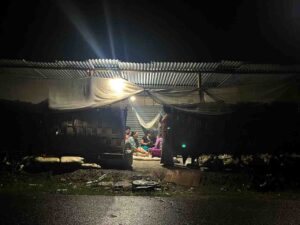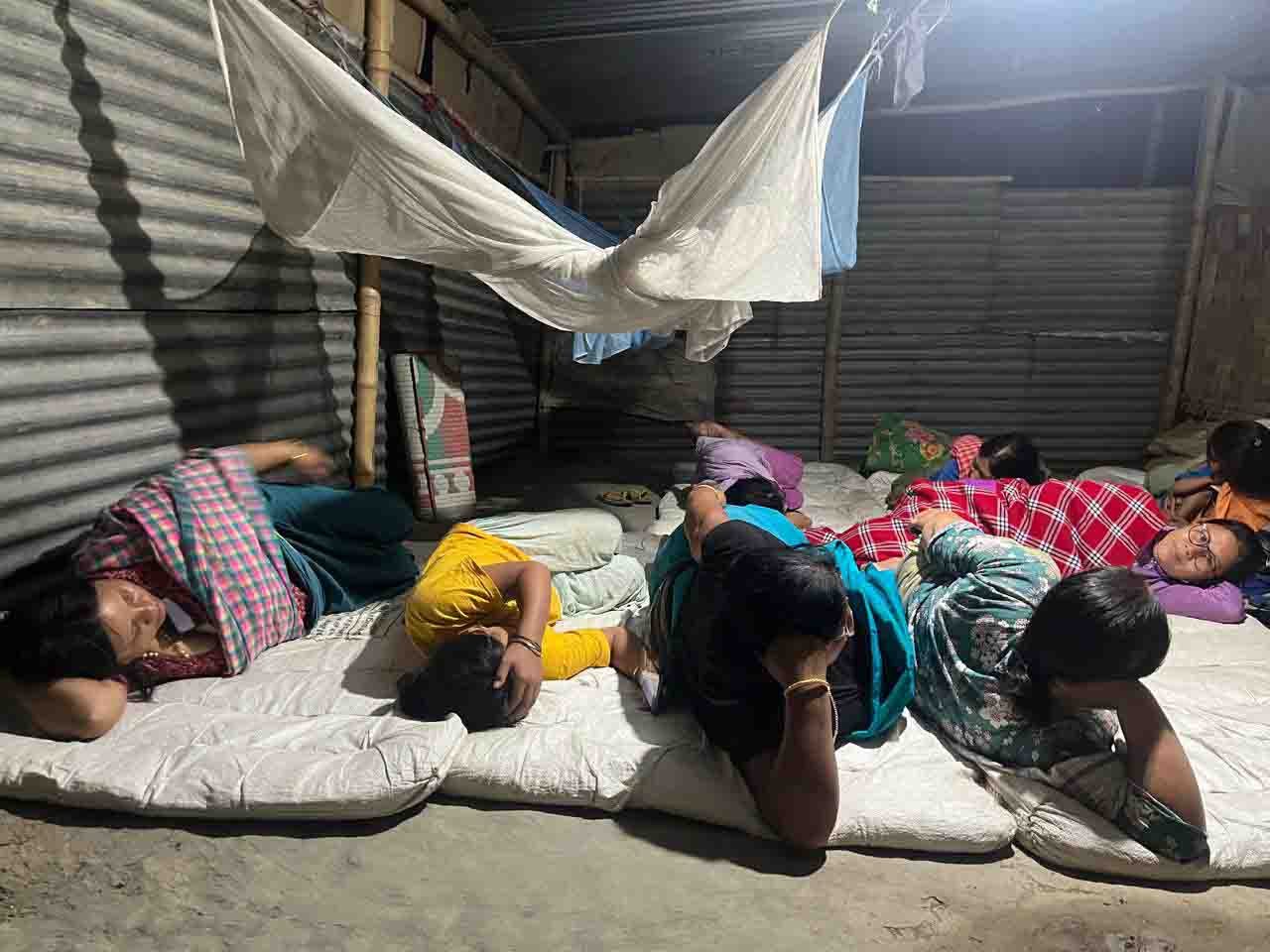In strife torn state of Manipur, everything seems to be normal in heart of valley region. Yet people living in peripheral areas and displaced people continue to linger in grim situation with enormous uncertainty.
Manipur conflict exceeds one year but state is still not able to bring complete normalcy. Localities residing in peripheral areas mainly women are guarding their own village throughout day and night.
Majority displaced people are still confining in relief camp. Their longingness of returning to their respective homes is mounting. However, seeing the prevailing scenario, it seems resettlement is still a long haul.
The middle part of valley districts appears to be normal. Except eruption of protest, agitation sometimes in connection with ongoing conflict, the days are going smoothly without much disruptions.

Schools, colleges resume effectively and business activities, government offices have been functioning from last many months. But the very disturbing fact is that people belonging to warring community still forbidden to visit from certain areas. Above this people in peripheral areas remain taking the responsibility of vigilantes since the onset of crisis to date.
The valley districts of Manipur comprised of Imphal West, Imphal East, Bishnupur, Kakching and Thoubal. The peripheral areas and adjoining areas of districts are still vulnerable as people witnessed sporadic attack and intermittent firing.
For Imphal West district, valley people who belong to warring community can’t proceed from Phayeng area and Sekmai area; in Imphal East, they are restricted to proceed from Yaingangpokpi area. Similarly, in Bishnpur district, they are restricted to move from Phougakchao Ikhai and in Thoubal district, warring community are restricted entering from Yairipok area.
As people living in vulnerable areas feel insecure and unsafe, they are still taking responsibility to safeguard their villages throughout day and night. The villagers formed team and take in-charge of protecting their village in rotation basis.
One of woman villagers from a peripheral area of Phayeng under Imphal West district said to Imphal Review of Arts and Politics “We the people of Phayeng feel so insecure and unsafe even after one year of crisis. Our village lies in adjoining area of hill district. Security forces of both state and central are deployed. However, we still decided to guard our village even during midnight staying at roadside or local community hall to be more vigilant.”
She also shared deterioration of health condition and impact to economic activities staying through out day and night in road to protect their village. But she expressed her determination of safeguarding her place until and unless complete normalcy restore.
“For more than one year, we compromise our sleep, economic activities in guarding the village. This has hugely impacted in our well-being. Despite of it, we will continue our service as protection of territorial integrity and people of state is top priority,” she expressed.
Ningthoujam Biren from Phayeng said that women take sole responsibility in guarding the village. However, during the night time, both man and woman jointly took the charge of defending the village.
He said that village protection was being done in an organise manner. Anybody who hesitate to take part in the activities has to pay fine that amounts to the tune of Rs 300.
Not only in Phayeng, village protection activities by villagers in still prevalent in most of the peripheral areas.
Nganthoibi, an affected victim staying in relief camp set up in one of the colleges under Imphal East district has stated that government claiming the restoration of peace in the state is very surprising. Many internally displaced people are still striving in relief camp with the longingness of returning to their respective house.
“In the relief camp where I am staying around 800 people are still staying. Maximum of them are from Moreh and Churachandpur. We are trying to normalise our abnormal life. Though government is providing two squares of meal and breakfast. But how long are we going to survive in this manner. I wouldn’t accept that peace is restored in Manipur until and unless I have the privilege to go back to my hometown,” Nganthoibi who is running tea stall inside the relief camp as a source of her livelihood said.
Seeing the endless hardship of people directly affected by conflict, would it be justifiable for the government to claim gradual restoration of peace and normalcy in Manipur using resumption of school, college, office and business activities as some of the key indicators.












